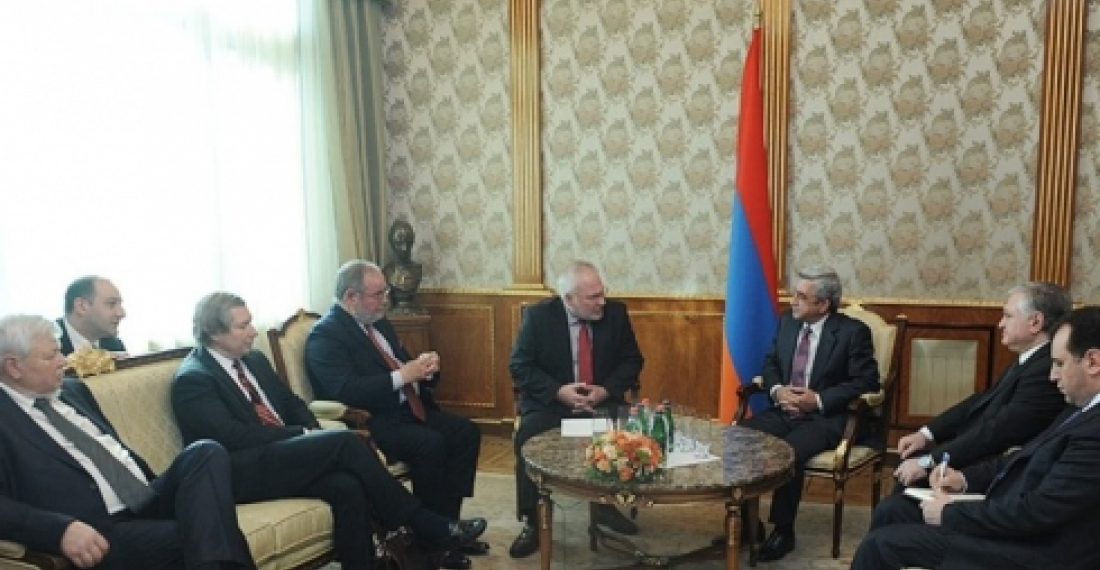A statement published on the OSCE website on Tuesday evening has confirmed that the Presidents of Armenia and Azerbaijan will meet later this month.
The statement said:
The Co-Chairs of the OSCE Minsk Group (Ambassadors Igor Popov of the Russian Federation, Jacques Faure of France, and James Warlick of the United States of America) and the Personal Representative of the OSCE Chairperson-in-Office, Ambassador Andrzej Kasprzyk, traveled to the region November 4-5 to continue their efforts to help the sides find a peaceful resolution to the Nagorno-Karabakh conflict. They met with Azerbaijani President Aliyev in Baku on November 4, and Armenian President Sargsyan in Yerevan on November 5, to discuss issues of importance for a Nagorno-Karabakh settlement. They also met with the Foreign Ministers and the Defence Ministers of both countries.
The Presidents have confirmed their intention to meet in November 2013 to clarify their positions on a settlement and to discuss the way forward.
The Co-Chairs continue to work on arrangements for the forthcoming summit. The Co-Chairs call upon the sides to exercise restraint on the ground as well as in their public statements. Military action, particularly at this moment, can only be seen as an attempt to damage the peace process."
In the morning the diplomats met with the Armenian President Serzh Sargsyan. The Press office of the President said that "The parties discussed the current phase of the NK peace process and issues pertaining to future steps." The new diplomatic initiative that has been in preparation for several months is now gathering momentum and the sides seem to have engaged with it.
source: commonspace.eu with osce.org and Armenian media.
photo: President Serzh Sargsyan of Armenia with the co-Chair of the OSCE Minsk Process in Yerevan on Tuesday, 5 November 2013. (Picture courtesy of the Press Service of the Armenian President.)







